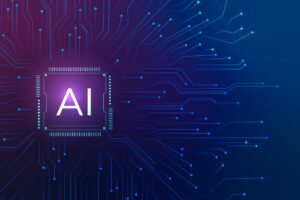
The Impact of AI on Every Scientific Frontier
In the future, science labs will use smart computers to solve tough problems quickly and make discoveries faster
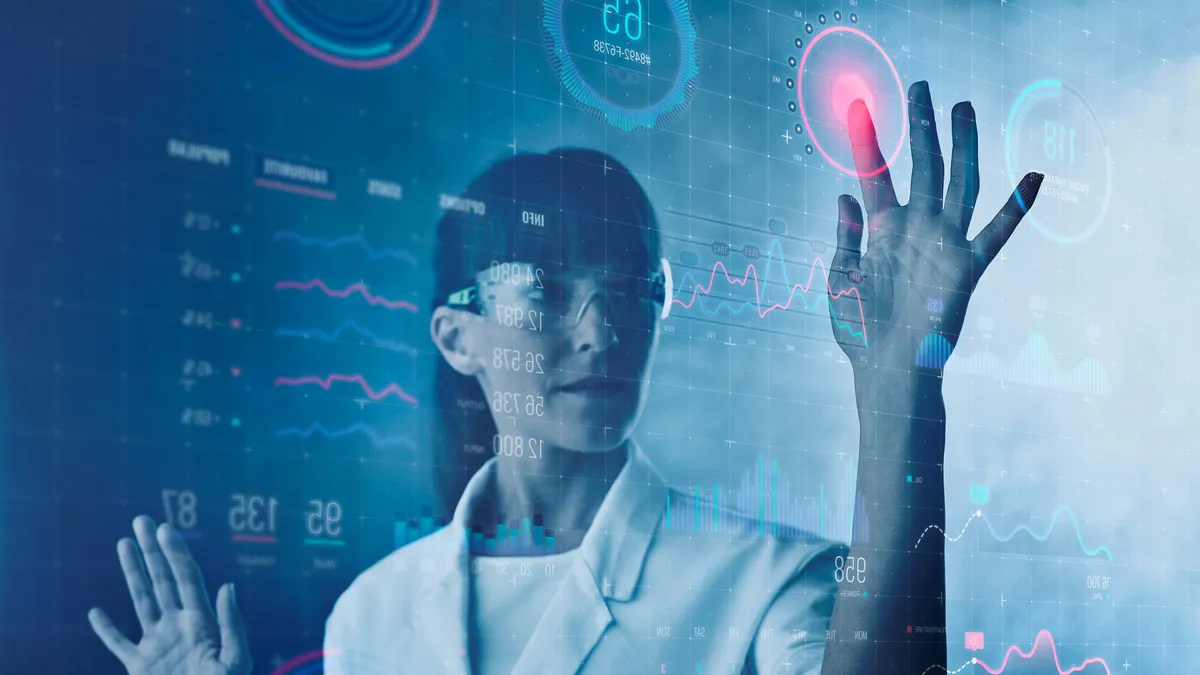
From creating medicines fast to virtual teleportation, here are some ways I think labs will change in the future.
Future scientific labs might not feature flying robots, smart AI helpers, or superhuman scientists like Tony Stark and Bruce Banner (also known as the Hulk). However, even though they may not resemble science fiction, their real-world achievements are expected to be just as remarkable.
1. Synthesise information faster
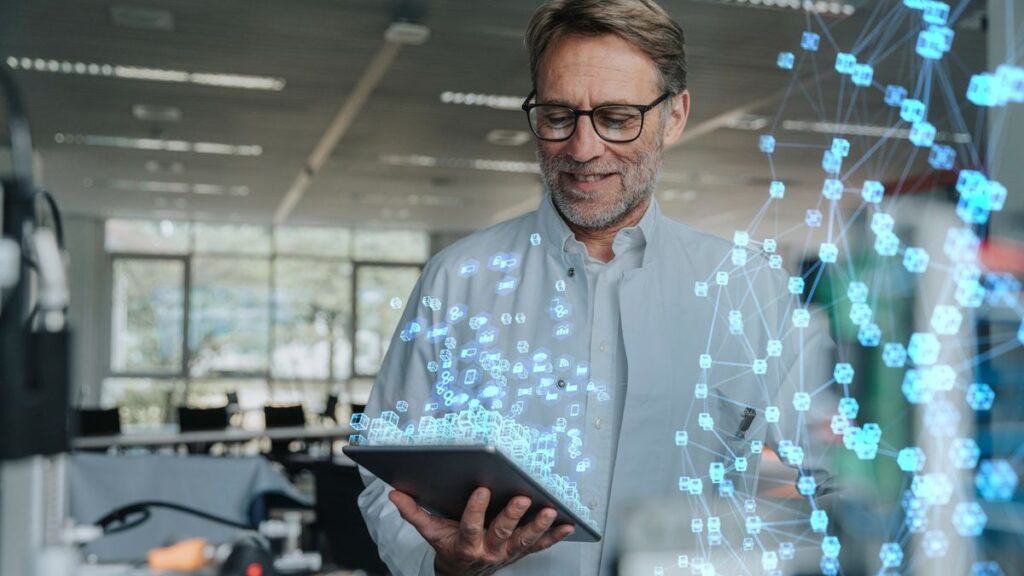
Every year, almost 1.8 million papers are published, and the average person generates 1.7 megabytes of data per second. So, how do we make sense of all this information?
The solution is AI. It can discover patterns and connections in data sets that humans might overlook. In fact, AI has already generated hypotheses that human scientists haven’t considered.
For example, AI-powered research assistants, like the one created by my company, SciSpace, help researchers read and understand research papers more quickly (Saikiran Chandha is the CEO and founder of SciSpace).
IBM’s geospatial mapping AI system can analyse large volumes of satellite imagery to detect and predict environmental changes, such as deforestation or droughts, with incredible accuracy.
This is just the beginning. We will soon witness AI being used to address questions that were previously impossible to answer, like how life first evolved, real nature of chaos, or how environment influences our genes.
Many of these questions have remained unanswered due to complexity or a lack of data. AI’s ability to analyse vast amounts of data, identify patterns, and make connections will be essential in unlocking answers to these profound questions.
2. Accelerate drug development
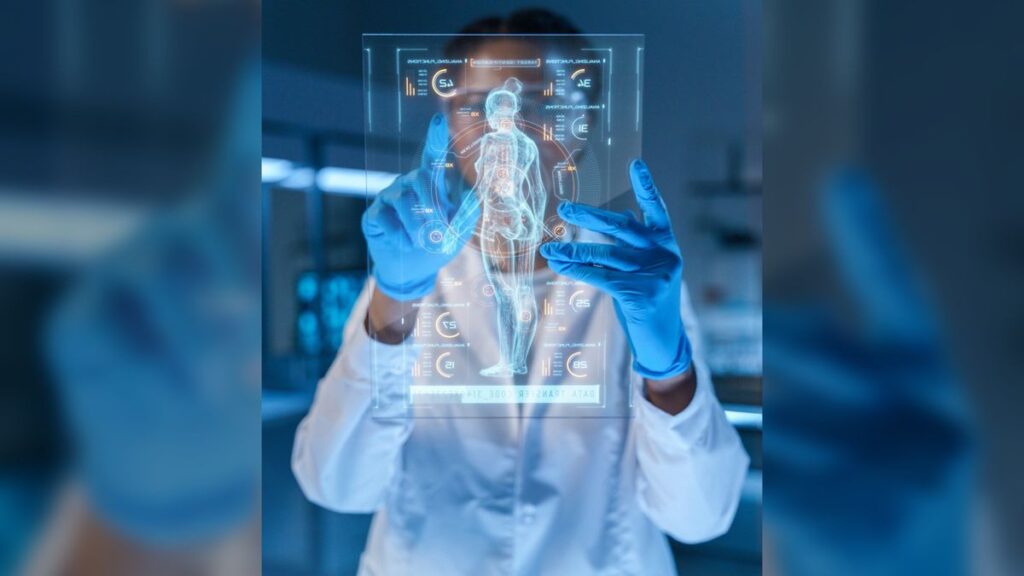
AI is revolutionising drug development, making it faster and more effective. For instance, DeepMind AI helped researchers create synthetic “syringes” for injecting tumor-killing compounds directly into cells in just 46 days, a process that typically takes years.
DeepMind also accurately predicted the shape of nearly every known protein, a crucial step in drug development that previously required years of lab work.
In January 2023, AbSci achieved a significant breakthrough by using zero-shot generative AI to create and validate de novo antibodies in silico.
Traditionally, creating antibodies involves using pre-existing ones or templates, a time-consuming process. In silico methods can reduce this time from 6 years to approximately 18-24 months.
As AI becomes more advanced, its role in lab science is expected to grow. Clinical trials could be shortened and simulated to assess efficacy and toxicity, minimising the need for animal testing. This advancement holds promise for cancer target identification and the discovery of new drugs.
3. Be anywhere at any time
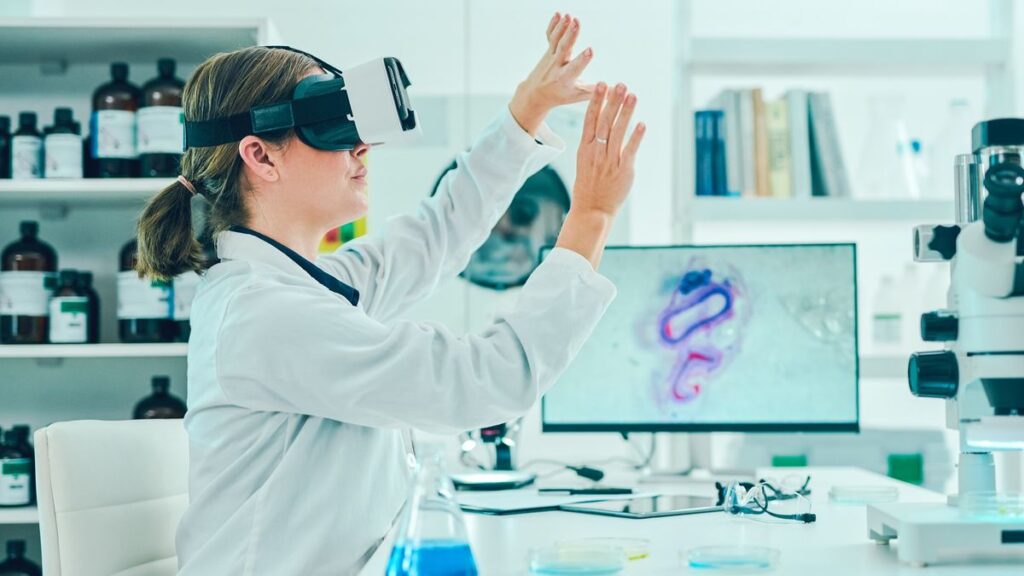
Imagine being in a science lab without actually being there. Thanks to virtual reality (VR) and AI, this could become a reality. Scientists might conduct experiments and manipulate digital models of molecules or materials in VR, all while keeping an eye on the results in real-time.
But it’s not just VR that’s changing the game. Researchers at Western University in Ontario, Canada, have achieved the world’s first international holographic teleportation, known as Holoport.
This technology uses a special camera to create a hologram of a subject, which can be received by someone far away using a hololens, essentially a VR set. If both people wear hololens, they can interact virtually.
However, the challenge is overcoming the limitation of physical touch. In the future, technologies like Holoport may become common in lab science, enabling scientists to collaborate instantly with colleagues worldwide.
They could send holographic images of lab equipment or observe an experiment happening on the other side of the world in real-time. This could lead to more international collaboration, faster scientific breakthroughs, and a more environmentally friendly scientific community.
Never miss any important news. Subscribe to our newsletter.
Related News


British Investor Who Predicted US Slump Warns of Next Crash

I’m a Death Doula: 4 Reasons I Believe Death Isn’t the End

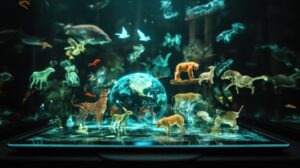
Tech to Reverse Climate Change & Revive Extinct Species
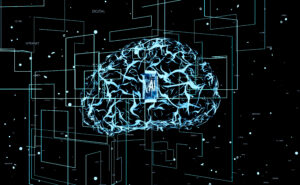
AI Unlocks the Brain’s Intelligence Pathways

XPENG Unveils Iron Robot with 60 Human-like Joints
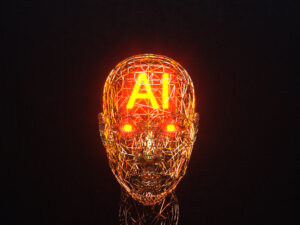
Can AI Outsmart Humanity?

11 ChatGPT Prompts to Boost Your Personal Brand

Keir Starmer Hints at Possible Tax Hikes on Asset Income
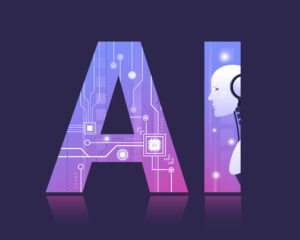
Navigating the Future of AI: Insights from Eric Schmidt
